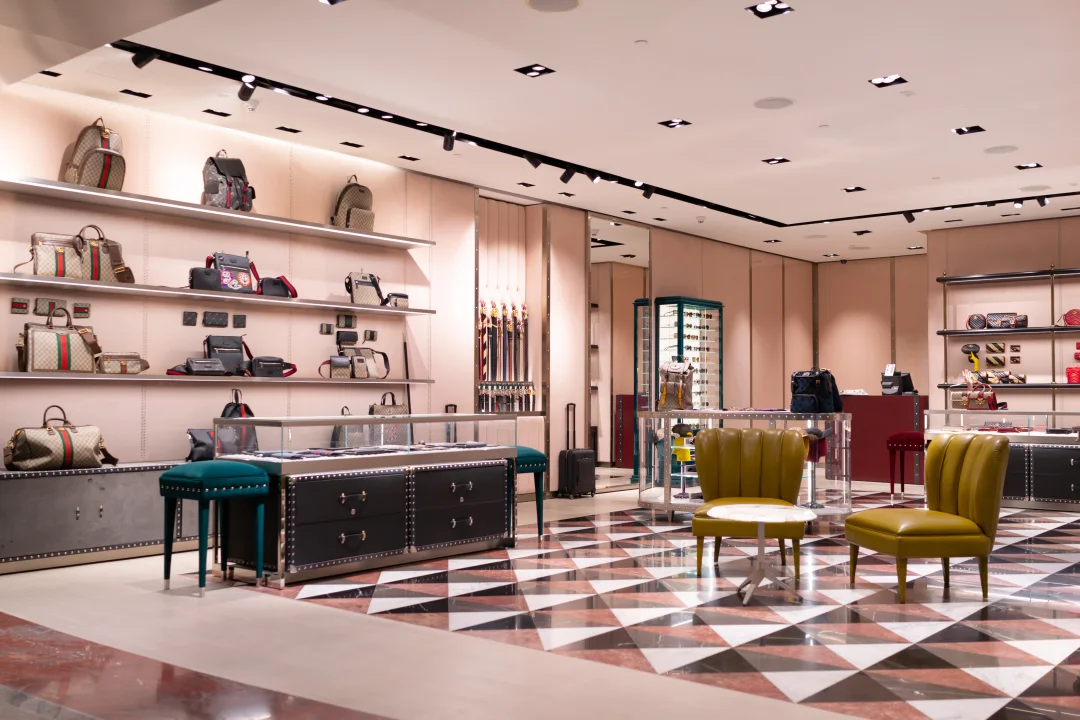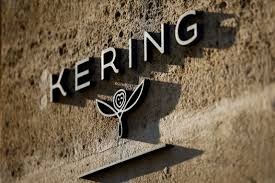In the world of luxury fashion, few brands are as iconic and widely recognized as Gucci. Known for its bold designs, innovative styles, and timeless appeal, Gucci has long been a crown jewel in the portfolio of its parent company, Kering. Yet, the brand has encountered significant challenges over the past few quarters, facing a sales slump that has raised concerns among investors and industry observers alike. Despite this dip in performance, the market has shown unexpected patience, holding steady as Gucci navigates a period of transformation aimed at reinvigorating its brand identity and adapting to the ever-evolving luxury landscape. Kering, as Gucci’s parent company, stands at a crucial juncture as it works to balance brand legacy with growth potential, relying on strategic decisions that could either reaffirm Gucci's place in the luxury hierarchy or exacerbate its struggles. Follow us here at Capri’s Stock Plummets as U.S. Court Halts.
Kering: The Visionary Force Behind Gucci
Kering, the French luxury conglomerate, has built a reputation for fostering high-end brands that resonate with consumers across the globe. Founded in 1963 by François Pinault, the company has transformed from a timber and construction materials business into one of the world's foremost luxury groups. Under the leadership of François-Henri Pinault, Kering's evolution over the last few decades has seen it strategically acquire and develop several luxury brands, including Saint Laurent, Bottega Veneta, Balenciaga, and, of course, Gucci. This transformation was not only groundbreaking for Kering but also instrumental in redefining how luxury conglomerates operate in a competitive, ever-globalizing market.
Within Kering’s portfolio, Gucci has historically been one of the most profitable brands, enjoying a reputation that attracts a broad clientele and inspires loyalty among high-end consumers. However, recent sales data have shown a marked decline, prompting questions about the brand’s future trajectory. This slump comes at a critical time for Kering, as it navigates the challenges of overseeing a brand that, while legendary, faces the pressures of remaining relevant in a rapidly shifting luxury sector. The market’s patience in light of Gucci’s sales decline suggests confidence that Kering’s strategic approach and brand-building expertise can help the brand regain its footing, though expectations remain high for a renewed momentum.
Related: Venom: The Last Dance (Film)
Related: Boohoo Responds to Fraser's Letter
Gucci
Founded in Florence in 1921, Gucci has earned its place in fashion history through nearly a century of delivering luxury with an edge. Originally established by Guccio Gucci, the brand quickly gained renown for its Italian craftsmanship and iconic designs, notably its signature green-red-green stripe and GG logo. Gucci’s appeal lies in its ability to innovate while remaining true to its roots, a balance that has captivated fashion enthusiasts and high-net-worth individuals alike. Over the years, the brand has gone through various reinventions, with creative directors like Tom Ford and, more recently, Alessandro Michele breathing new life into the label through bold, eclectic styles that have consistently set fashion trends.

Alessandro Michele’s tenure as creative director brought Gucci to new heights, attracting a younger, trend-conscious audience and turning the brand into a pop culture sensation. Michele’s visionary approach emphasized individuality and inclusivity, a fresh departure that resonated globally, particularly with millennials and Gen Z. However, in recent years, Gucci has struggled to maintain this momentum, facing criticism that the brand's aesthetic under Michele had become too niche and, to some, overly eccentric. The brand’s sales slump reflects these shifts in consumer sentiment, suggesting that Gucci may need to revisit its strategy to align better with the evolving tastes of luxury buyers.
Now, with a newly appointed creative director, Sabato De Sarno, Gucci is attempting to strike a balance between its heritage and a refreshed design vision. As the brand charts this new path, it remains to be seen whether Gucci’s adjustments will effectively attract a broader audience while retaining the loyal following that fell in love with Michele’s unique aesthetic.
Demonstrated Resilience Amidst Shifting Consumer Preferences
While Gucci’s sales figures may currently be less than stellar, Kering and the luxury market as a whole have demonstrated resilience, showing confidence in Gucci’s ability to recover. This patience can largely be attributed to Kering’s previous track record of successfully navigating brand challenges. Gucci’s status as an icon within luxury fashion provides it with a degree of brand equity that few others enjoy, and even in times of financial strain, the brand remains one of the most recognized and sought-after names worldwide.
The market’s tolerance for Gucci’s sales slump also reflects the recognition that luxury brands, much like fine art, can experience peaks and valleys as they evolve. Gucci’s current sales slump does not necessarily indicate a long-term decline but rather a potential period of recalibration. This period could allow the brand to refine its offerings, positioning itself for sustainable growth in the coming years. Luxury consumers, particularly those loyal to Gucci, are often more forgiving of short-term fluctuations, understanding that a brand like Gucci is in it for the long haul.
Adapting to a New Era of Luxury
Gucci’s recent efforts under Kering’s guidance indicate that the brand is in the process of a strategic overhaul, aiming to reestablish its place in an increasingly competitive luxury market. In particular, Gucci’s decision to appoint Sabato De Sarno as creative director signals a shift in design direction that could address some of the critiques aimed at the brand’s recent aesthetic choices. De Sarno’s approach is expected to be more restrained, bringing a sense of refinement and timeless appeal back to Gucci’s collections while preserving the brand’s reputation for creativity and innovation. This transition marks a departure from Michele’s maximalist style, potentially appealing to a broader, more diverse consumer base.
In terms of market strategy, Gucci is also exploring new channels to connect with its audience, leveraging digital platforms and immersive experiences that align with luxury consumers’ desire for exclusivity and personalization. The brand has embraced collaborations, pop-up stores, and interactive campaigns to maintain engagement, recognizing that modern luxury buyers crave more than just products—they seek a narrative and experience that resonates on a personal level.
Looking ahead, Gucci’s evolution under Kering’s leadership will likely continue to adapt to shifting cultural and consumer landscapes, but the company’s approach will need to balance trend-setting innovation with timeless appeal. This balance will be essential for the brand to capture the attention of a new generation of consumers while staying true to the brand’s loyal, long-term followers. Gucci’s potential resurgence could also serve as a model for other luxury brands facing similar challenges, showcasing how heritage and adaptation can coexist within a single, evolving luxury entity.
